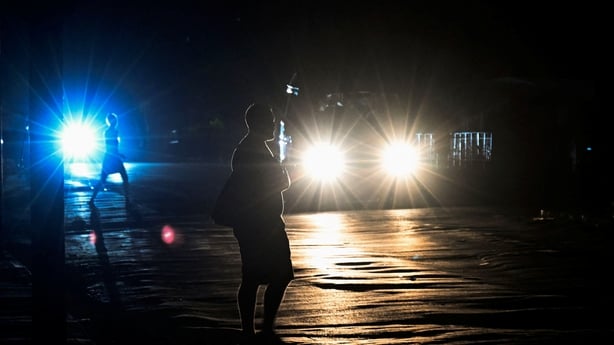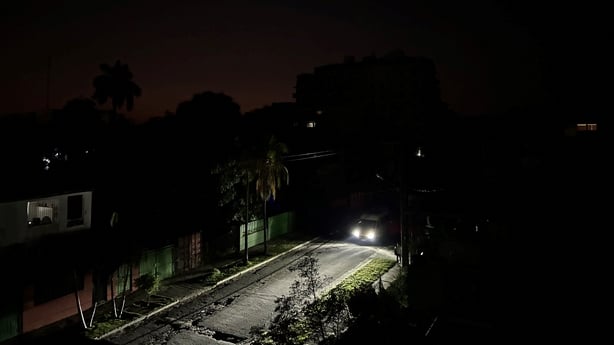Cuba suffered a general blackout caused by a crash of its national electricity grid, officials said, the fourth major power outage on the island in five months.
"At around 8.15pm tonight, a breakdown... caused the significant loss of power in western Cuba and with it the fall of the national electricity system," the Ministry of Energy and Mines said.
Writing on the social network X, Prime Minister Manuel Marrero Cruz said the government was "working tirelessly" to restore power.
In by now familiar scenes, the streets of Havana were plunged into darkness.

Only a few hotels and private businesses with generators still had lights on, as did essential services such as hospitals.
A resident of the central city of Camaguey said she was about to sit down for dinner when the power failed.
"I'm not even hungry anymore," she told AFP. "This situation is unsustainable, no one can live like this."
Another resident, from the eastern province of Holguin, said he had not been expecting yet another blackout so soon.
"It really bugs me," he said. "Let's see when they get it (the power) back on."
Read more: Cuba's electricity grid collapses for second time
The island of 9.7 million inhabitants has suffered three nationwide blackouts in the final months of 2024, two of them lasting several days.
The repeated outages comes as the island battles its worst economic crisis in 30 years, marked by widespread shortages of food, medicine and fuel, high inflation and a massive outflow of migrants, mostly bound for the United States.
Race to expand solar power
Yesterday marked the first general blackout of 2025, but citizens face almost daily outages of four or five hours across much of Havana, while in rural provinces the periods without power can last 20 hours or longer.
Cuba's eight thermal power plants, nearly all of which came online in the 1980s or 1990s, suffer routine failures.
And the Turkish floating power barges that help boost Cuba's national grid are fed with expensive imported fuel which is often in short supply.

In mid-October, a breakdown at the Guiteras plant, Cuba's largest, left the island without power for four days.
The same facility suffered another breakdown that took down the grid in December.
A month earlier, Hurricane Rafael had also knocked out power to the entire country.
Cuba's leadership blames a six-decade-long US trade embargo that intensified during Donald Trump's first presidency for its difficulties in keeping the lights on.
To make up its electricity shortfall, Cuba is racing to install a series of at least 55 solar farms with Chinese technology by the end of this year.
According to authorities, these facilities will generate some 1,200 megawatts of power, about 12% of the national total.

